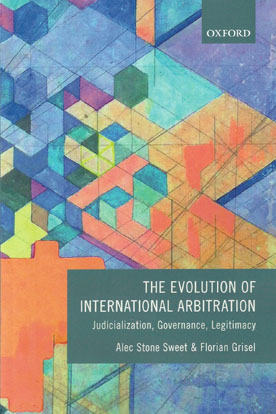
The development of international arbitration as an autonomous legal order comprises one of the most remarkable stories of institution building at the global level over the past century.
In this book, Alec Stone Sweet and Florian Grisel show that international arbitration has undergone a self-sustaining process of institutional evolution that has steadily enhanced arbitral authority. This judicialization process was sustained by the explosion of trade and investment, which generated a steady stream of high stakes disputes, and the efforts of elite arbitrators and the major centres to construct arbitration as a viable substitute for litigation in domestic courts.
For their part, state officials (as legislators and treaty makers), and national judges (as enforcers of arbitral awards), have not just adapted to the expansion of arbitration; they have heavily invested in it, extending the arbitral order's reach and effectiveness. Arbitration's very success has, nonetheless, raised serious questions about its legitimacy as a mode of transnational governance.
The book provides a clear causal theory of judicialization using original data and analysis, and a broad, relatively non-technical overview of the evolution of the arbitral order. Each chapter compares international commercial and investor-state arbitration, across clearly specified measures of judicialization and governance.
Topics include:-
This book is a timely assessment of how arbitration has risen to become a key component of international economic law and why its future is far from settled.